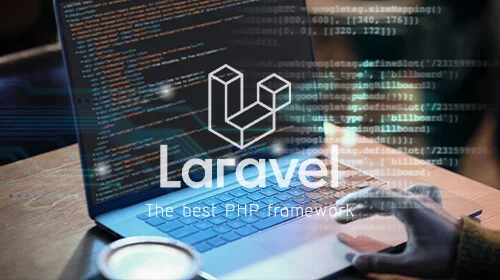Mastering Laravel: Unleashing the Power of PHP for Software Development


Web development is a vast landscape and PHP can be the driving force behind it. PHP is a well-known server-side scripting language that covers a major portion of the internet. Throughout the years, we have witnessed the emergence of multiple PHP frameworks with the aim of simplifying the development process and boosting the productivity of developers. Laravel became a game-changer and impacted millions of web developers. It received recognition within a short period of time and became one of the most widely used PHP frameworks in the web development community. In this article, we are going to investigate the key features, benefits, and immense popularity of Laravel.
Taylor Otwell is the master brain behind this framework. He introduced Laravel to web development in 2011. Broadly speaking, Laravel is an open-source PHP web application framework. The program is better organized and manageable because it adheres to the model-view-controller (MVC) architectural paradigm, which encourages the separation of concerns. The framework, which is based on a number of PHP components, offers an array of capabilities that simplify typical development tasks, obviating the need for repeated code and accelerating development.
Eloquent, an elegant and potent Object-Relational Mapping (ORM), is one of Laravel’s unique features. Developers can interact with the database by using PHP classes in this eloquent ORM. In order to carry out the database operations, it provides the users with simple and expressive syntax. Working with database records is incredibly easy thanks to this functionality, which also substantially simplifies database maintenance.
Laravel is powered by a thin, sturdy templating engine named Blade. Blade templates have a clean and plain syntax for the design of views that supports template inheritance and section creation, making it easy to create reusable and dynamic templates.
Laravel provides an accurate and accurate and expressive syntax to define routes, that helps developers map URLs to controllers conveniently. It facilitates the filtering of HTTP requests entering the application, permitting various tasks such as authentication, logging, and many more to be executed in a modular and reusable manner.
Laravel simplifies everything including user authentication and access control. For user registration and login, it has in-built controllers and views. In addition to this, it provides robust mechanisms for managing user roles and permissions.
Laravel emphasizes the importance of testing and offers a powerful testing environment with PHP-unit integration. There are various testing processes in Laravel such as unit tests, integration tests, and feature tests. It can enhance code quality and reliability.
The framework offers support for various caching systems, for example, Redis and Memcached, which can rapidly enhance application performance by limiting database queries and improving response times.
In order to make code writing a delightful experience, Laravel’s syntax is designed in such a way that it can be both elegant and expressive. It reduces boilerplate, which ultimately enhances productivity and keeps the codebase clean and maintainable.
Laravel boasts broad and efficient documentation, making it simple for developers, particularly newcomers, to gain proficiency with the system and access data rapidly when required.
The vibrant and welcoming community of developers is the strength of Laravel. This people group effectively contributes to the development of the structure by creating packages, making tutorials, and taking part in online forums, offering support and solutions for individual developers.
The Laravel ecosystem is constantly developing. The Laravel community efficiently keeps up with the system, giving customary updates, and security patches. Moreover, the community contributes new features and packages, ensuring that Laravel remains relevant and up-to-date with the latest web-development technologies and practices.
To conclude, Laravel remains a dominant force in the PHP development community because of its elegant syntax, a wide range of features, and vibrant community. It gives prominence to developer productivity, maintenance, and performance optimization. These all make Laravel the most suitable option for projects of all sizes. Web development is continuously evolving and Laravel is at the forefront of web applications.